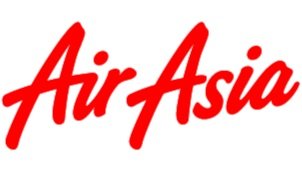AirAsia Statement
SEPANG, 14 June 2018 - We are deeply disappointed with the grossly misleading statement made by the Malaysian Aviation Commission (Mavcom) on 13 June 2018.
It is disingenuous for Mavcom to state that air traffic rights (ATR) allocation follows a process that takes into account airlines’ views, as it does not. AirAsia has provided feedback at all three meetings called by the commission on 23 November 2017, 6 February 2018 and 2 May 2018 to discuss the proposal to revise the ATR allocation process, as well as in three letters dated 23 January 2018, 15 February 2018 and 7 May 2018.
However, most of our concerns were ignored and have not been addressed, including:
- The operation of international routes which are unrestricted in bilateral air agreements (permitting unlimited operations by airlines in terms of frequencies, seat capacity and aircraft types) should not be blocked. Mavcom’s decision to reject our route applications is therefore completely against the Open Skies policy advocated by the Ministry of Transport Malaysia when negotiating for bilateral air agreements with other countries.
- Airlines should not be forced to provide commercially sensitive and confidential information such as unit revenue/cost (RASK/CASK) figures and air fare structures when requesting for route approvals. Financial evaluation of routes should be left to the airlines, as it is the airlines’ prerogative to decide on the commercial viability of their own operations.
- Mavcom should simplify the ATR allocation process as it is now extremely cumbersome due to the high number of documents and data that need to be provided to support applications for route approvals.
- More transparency is required from Mavcom as no detailed computation/supporting data is provided when a route is rejected, other than a statement citing “overcapacity” on the route concerned.
Mavcom cited specific examples in its statement. With regards to the rejection of AirAsia’s application to increase Kota Kinabalu-Sandakan flights from 25 trips to 32 trips per week citing overcapacity, our flights on that route are already at 90 percent load factor. We also wish to seek clarification from Mavcom on why MASwings is being allowed to operate 21 trips per week on the route. MASwings is a fully subsidised airline and possesses an undue financial advantage over other commercial airlines, and a review of its 21 times weekly service is required. Inter-Sabah air connectivity has been held back for years and we are keen to boost tourism in the state.
As for Kuala Lumpur-Haikou, it is irrelevant to state that AirAsia had previously operated and terminated the route in 2012 as market conditions have changed since then. Chinese nationals now enjoy an e-Visa facility for travel into Malaysia and Malaysia is one of the 59 countries that enjoy visa-free access to Hainan island, where Haikou is located. These factors mean additional capacity is needed on the route to cope with the projected increase in traffic between Kuala Lumpur and Haikou.
Malaysian carriers already lag behind their Asean competitors in terms of total weekly seats deployed for points in Asia. According to the Ministry of Tourism Malaysia, Thai carriers have deployed 893,166 weekly seats while Singapore carriers have deployed 661,863, compared to 590,422 by Malaysian carriers as of December 2017. Mavcom blocking growth in this manner only serves to benefit other regional airlines who are allowed to grow without undue restrictions by their own civil aviation authorities.
We have also seen a 3.0 percent decline in tourist arrivals to Malaysia to 25.95 million in 2017 from 26.76 million in 2016. Mavcom’s rejection of route applications will only further compound the issue and hamper Malaysia’s tourism and economic growth.
We reiterate our stance that the responsibility for granting route approvals should be given back to the Ministry of Transport (MOT). MOT understands the importance and values the benefits of a fully liberalised aviation industry, and has consistently granted the necessary route approvals as long as bilateral rights are available.
AirAsia Malaysia CEO Riad Asmat said, “Mavcom is not an airline, and should leave the business to actual airlines like AirAsia that understand the market. Since 2001, we have grown from two planes to more than 200 aircraft and from 200,000 guests flown in that first year to 89 million guests this year. We operate more than 320 routes - one-third of which are unique - to over 130 destinations across Asia Pacific, the Middle East and the US.
“We have a dedicated team of 20 people working on network and scheduling as well as another 60 people doing route revenue working to make flights more affordable for the rakyat. By failing to understand the true business of airlines, and by trying to micro-manage the industry, Mavcom is doing more harm than good to Malaysian aviation, the exact opposite of its mandate. It is holding the industry back with slow approvals and high charges while other countries invest heavily in increased air traffic connectivity, to the detriment of the Malaysian tourism sector and the economy.”
